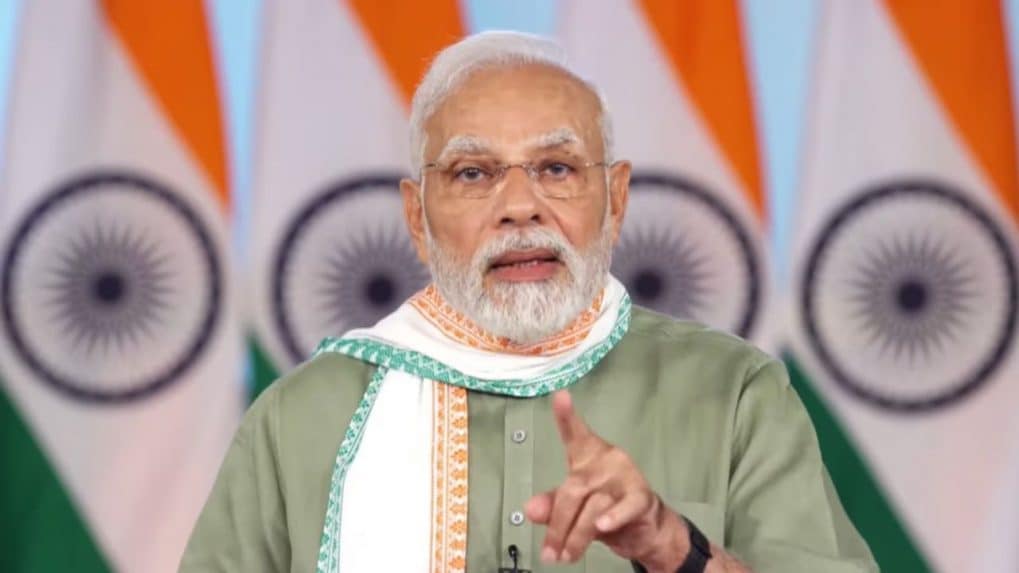By embracing Made in India, we move faster toward becoming a developed nation: PM Modi
Prime Minister Narendra Modi drew a parallel between the past and present, noting that just as the mantra of swadeshi was the driving force behind India’s freedom struggle, it will also fuel the nation’s future prosperity.
ADVERTISEMENT
Prime Minister Narendra Modi, in his national address on Sunday made a strong appeal for swadeshi, urging Indians to buy products and services made within the country. This push for Make in India and Aatmanirbhar Bharat (self-reliant India) came amid global trade uncertainty and ongoing tariff negotiations with the United States.
In a televised address on the eve of Navratri, the Prime Minister called on citizens to be proud of buying and selling "Swadeshi" products, stating that India’s prosperity is directly tied to its self-reliance.
“To achieve the goal of a developed India, we must walk the path of self-reliance, and our MSMEs bear a significant responsibility in making India self-reliant," he said.
He also urged people to prioritize domestic manufacturing whenever possible, emphasizing:
“What the people of the country need… what we can make in the country itself… that we should make in the country."
According to PM Modi, by embracing Made in India, the country will move faster toward becoming a developed nation. Modi drew a parallel between the past and present, noting that just as the mantra of swadeshi was the driving force behind India’s freedom struggle, it will also fuel the nation’s future prosperity. He stressed that all states are equal partners in this development and should accelerate manufacturing with the goals of Atmanirbhar Bharat and swadeshi in mind.
The Prime Minister recalled the inefficiencies of India's old tax regime, which he described as a complex web of cascading taxes that ultimately burdened ordinary citizens.
“The poor paid for these systems, and consumers were forced to carry the cost of multiple taxes,” he remarked.
Modi explained that his government prioritized implementing GST from its first term, calling it a historic correction that unified India’s fragmented market. He highlighted that building a consensus with states and all stakeholders was essential for what became the country's most significant tax reform in decades.
GST 2.0 and the Road Ahead
The Prime Minister announced that the new "Next-Generation GST reforms" would take effect the next day, which he called a "GST bachat utsav" (savings festival). The revamped regime simplifies the tax into two tiers, with most items falling under 5% and 18%. Ultra-luxury goods will be taxed at 40%, while tobacco products will remain at 28% plus a cess.
According to the Prime Minister, these reforms would lead to:
Lower costs for consumers.
Cheaper travel and hotel stays.
Relief for the middle and neo-middle classes through lower tax burdens.
A more attractive environment for investment and manufacturing.
Modi emphasized that reform is a continuous process.
“GST has resolved issues raised by states and stakeholders. Reform is a continuous process, and we need next-generation reforms that reflect the needs of a growing nation,” he said.
The Prime Minister said the reforms would accelerate India’s growth, improve ease of doing business, and attract more investors. The GST Council had decided to reduce tax rates on most goods and services, effective September 22. This change means that everyday items like ghee, butter, coffee, and ice cream, along with household appliances like TVs, ACs, and washing machines, will become more affordable.
Read More:PM Narendra Modi to address nation at 5 pm ahead of GST 2.0 rollout


